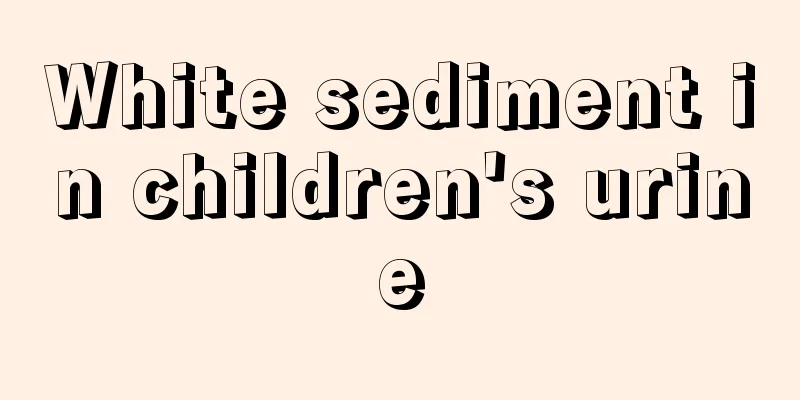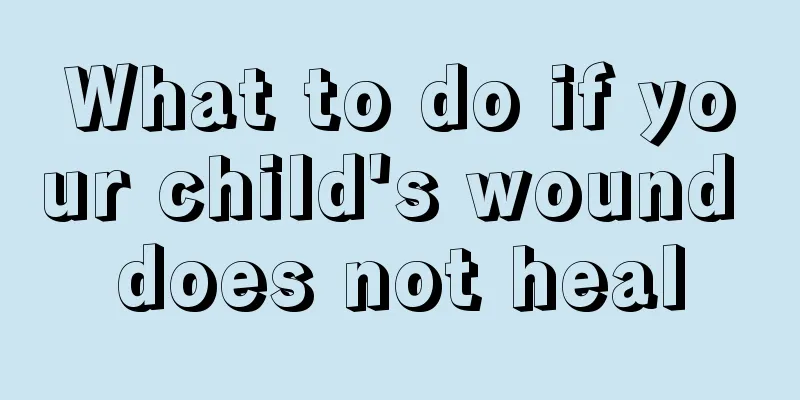How to identify the intellectual development of babies by clenching their fists

|
The intellectual development of infants is a concern for parents, because we all know that whether the intellectual development is normal or not is directly related to the growth of the infant and his future. However, there are many factors that can cause certain harm to the intelligence of a newborn baby, so parents should pay attention to observing his intellectual development in life. Usually, for newborn babies, it is normal for their hands to be in a clenched fist state at the beginning, but as they grow up, this inward-clenched fist condition will gradually disappear. 1. Usually newborns will only make fists and wave them around randomly. Their brains cannot yet command their hands to put into their mouths. When they are 2 to 3 months old, as their brains develop, babies gradually learn two actions: one is to stare at their hands, and the other is to suck their fingers. For them, thumb sucking is a form of learning and play. In addition, babies at this stage mainly learn about the outside world through their mouths. Babies think that hands are also things in the outside world, so they always like to put them in their mouths to suck and perceive. And babies are usually very quiet when sucking their fingers, which shows that this behavior also plays an important role in their psychological development. Therefore, parents do not need to be anxious or worried about their babies sucking their fingers, let alone stop them by force. 2. If the child's behavior is too frequent, parents can often stroke and swing the child's hands to divert his attention from sucking his fingers. When the child can hold a toy, parents can put the toy in his hands and tease him to shake and play with the toy, occupying the baby's hands and leaving him no time to suck his fingers. 3. Babies under 6 months old suck their fingers just to satisfy their sucking needs. Generally, the problem will disappear naturally when they are 6 to 7 months old. There is no need to pay too much attention to this problem. Parents can solve this problem by satisfying their children's sucking needs, such as feeding their children breast milk as much as possible, letting the child suck for a while longer during feeding to satisfy his sucking instinct, etc. Don't stare at your child nervously, take his fingers away as soon as he puts them in his mouth, or put bitter or spicy things on his little fingers to prevent it, or make him put gloves on him. These methods are basically useless except wasting adults' energy and making children suffer. Children will still suck their fingers with relish when they get the chance. For babies after 4 or 6 months, sucking their fingers is a sign of masturbation. Parents should think of ways to ease the child’s psychological tension and think about whether the child lacks any toys that interest them. Have you not hugged your child or talked to him more often? Whether the child has been left alone in the stroller for too long, etc. Create a warm and pleasant living environment for your child, take your child out into nature more often, let him or her be exposed to more stimuli, and focus his or her energy on exploring things of interest in the outside world. Avoid using coercive, simple and rough measures. In this way, the child's habit of sucking his fingers will gradually fade away. |
<<: When can a baby's head stand upright?
>>: What causes jelly-like mucus in babies?
Recommend
What to eat when your baby is suffering from internal heat
What mothers fear most is that something goes wro...
What should a three-year-old child with anemia eat?
For a three-year-old child, if anemia occurs, par...
Five ways to keep your baby away from prickly heat in summer
Tip 1: Temperature control A hot and humid enviro...
Gifts for one-year-old baby
In this era of one baby in three families, childr...
Healthy recipes for six-year-olds
The physical growth of preschool children is very...
What causes rubella in children?
Sometimes when a child has health problems, paren...
15 month old baby has diarrhea
If a 15-month-old baby has diarrhea, it is often ...
What to do if the child is a little angry
With the continuous progress and development of s...
Difference between wheezing and asthma in children
Asthma is a disease that is very difficult to cur...
High lead level in baby
Family members cannot tell with the naked eye whe...
What medicines can be used to treat babies bitten by mites?
Everyone knows that mites have a great impact on ...
Why is there blood in baby's stool and how to solve it
I believe everyone is very concerned about the ba...
What causes swollen eye bags in children?
It is very common for adults to have bags under t...
The child always twists his neck. What should I do if the child twists his neck?
The health of children is always a concern for pa...
What can students eat to help them with poor memory?
If students have poor memory, it will affect thei...









